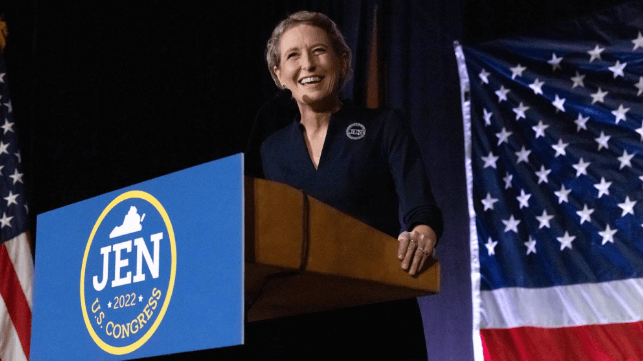Only in Norfolk: Ex-Navy Officer Loses House Seat to Ex-Navy Officer

Former Navy surface warfare officer Rep. Elaine Luria (D-Norfolk) has lost her seat in the House to a former Navy helicopter pilot, State Senator Jen Kiggans (R-Virginia Beach).
It is perhaps no surprise that Virginia's 2nd District would see two former naval officers face off. The area may be the most navy-centric constituency in the United States: it encompasses Hampton, Virginia Beach, Naval Air Station Oceana, Joint Expeditionary Base Little Creek and Norfolk Naval Station, the largest naval base in the world.
Luria and Kiggans are both well qualified to represent a district full of officers. Luria spent 20 years in the Navy, tending nuclear reactors and then commanding a landing craft unit, and she retired with the rank of commander. (When elected, she had more years of active-duty military service than any other Democrat in the house.) Kiggans spent 10 years flying the Navy's biggest helicopters, the H-46 Sea Knight and the H-3 Sea King, and she made two deployments to the Persian Gulf.

that matters most
Get the latest maritime news delivered to your inbox daily.
In her two terms in the House, Luria made a name for herself as an ardent critic of the Navy's procurement process and its strategic planning. She took Navy leadership to task over the long-delayed carrier USS Gerald R. Ford, excoriating program officers for "spending $13 billion on a nuclear-powered berthing barge that's going to deploy six years past its original design timeline." (They sped it up to five.) She sharply criticized the Pentagon and the Navy for ever-shifting shipbuilding strategies and fleet requirements. And she was particularly outspoken in defending the size of the surface fleet - even if it meant spending extra O&M on aging Ticonderoga-class cruisers and maintenance-hungry Littoral Combat Ships.
Luria's tenure in Congress will soon end, and Kiggans' record on naval defense issues will begin. As a state senator, she promoted measures to encourage veterans to stay in-state, including tax breaks and workforce opportunities. Her House election campaign was largely defined by cultural issues, but on national security, Kiggans has pledged to defend military funding and to advocate for military families.
